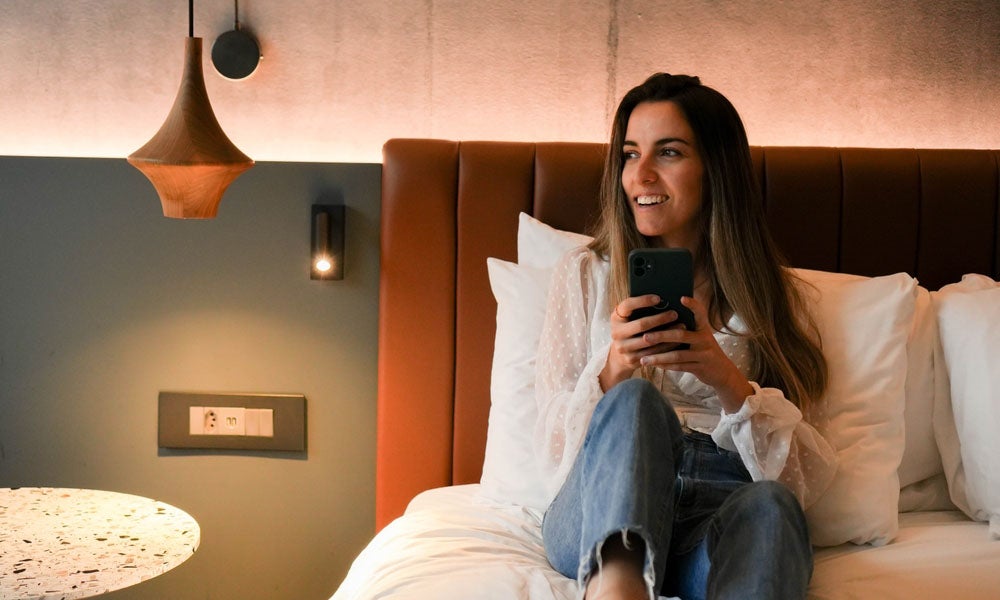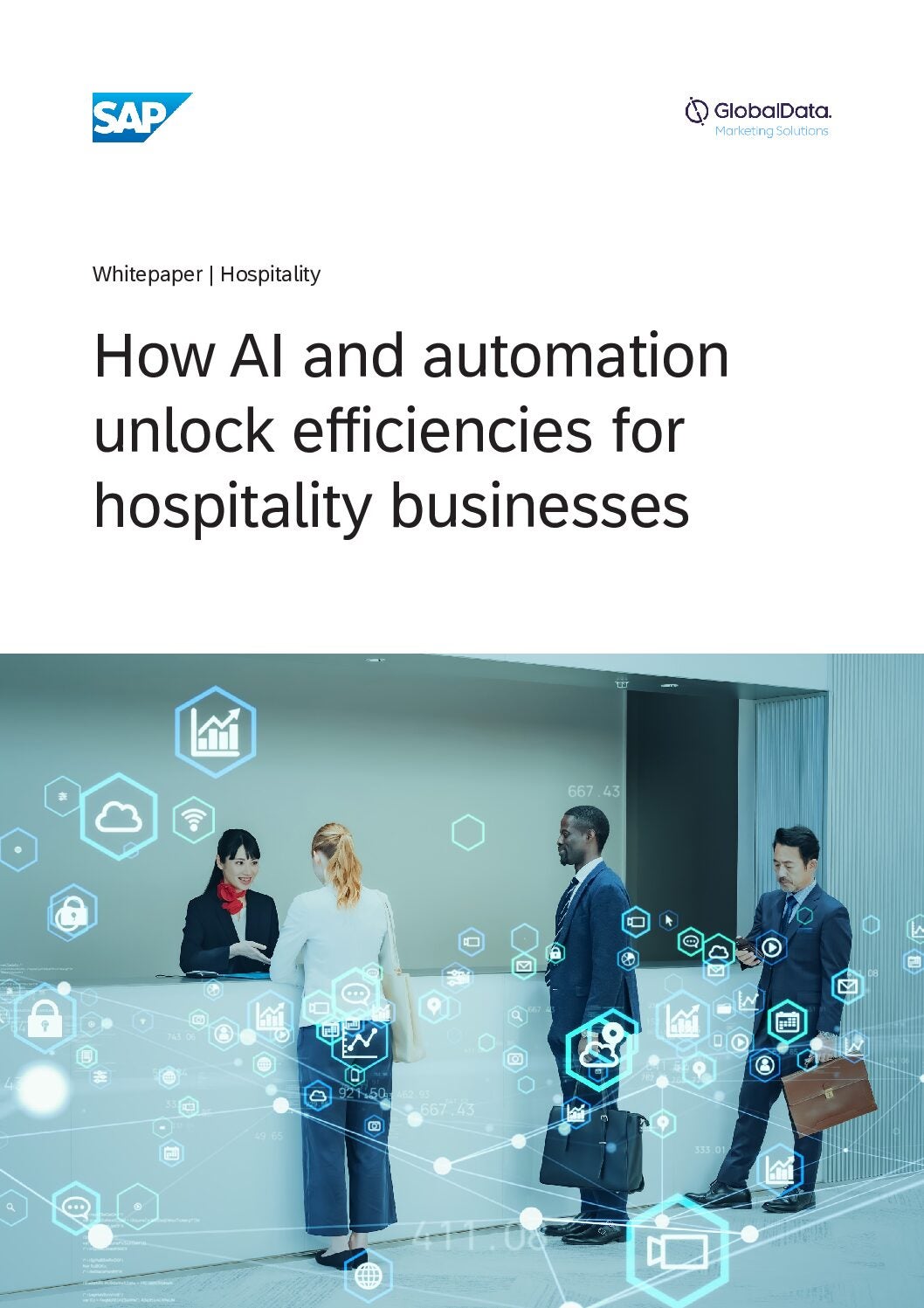
Hospitality businesses can now offer customers precisely targeted promotions and experiences based on an individual’s known interests and past behaviors, potentially opening up numerous revenue streams.
Rather than a one-size-fits-all approach, hospitality businesses can create a more tailored and relevant experience for each customer using a combination of website interactions, apps, and previous bookings. Such insights can be used to inform on aspects such as dietary requirements or even the desired room temperature.
This helps enhance guest satisfaction, build loyalty, and drive increased revenue. A more individualized experience satisfies consumers’ changing tastes, particularly those of younger, more tech-savvy travelers.
Tourism spending is increasing globally
According to GlobalData, global outbound tourism expenditure is expected to reach pre-pandemic levels in 2024 ($2.52trn) and rise to $3.66trn in 2028 – an increase of nearly 14% from 2023 to 2028.[i]
Consumer preferences are shifting towards more travel options focused more on experiences, particular for younger generations.[ii] This leads to higher spending in areas such as activities, dining, and experiencing local cultures. To meet this shift, some travel companies are offering personalized, off-the-beaten-track packages, as well as more sustainable tourism practices.
Digital technology and social media have significantly influenced travel planning and booking in recent years, enabling travelers to explore options across multiple destinations and make informed decisions based on online research and recommendations from other travelers.
How can hospitality benefit from personalization?
Jerod Ng is global hospitality lead at SAP, which provides specialist IT solutions to the hospitality sector. He says that personalization has become a core expectation for customers in the hospitality industry, driven by evolving consumer behavior and technological advances such as AI and machine learning.
“A lot of customers see personalization as a key aspect of their day and feel that they would like experiences that really cater to their unique preferences,” says Ng. “That can often take the form of having tailored offers or tailored local activity recommendations. And it is this personalization that really drives guest satisfaction and loyalty in an industry where differentiation through service quality is critical.”
Furthermore, personalization can increase customer spend by 10%-15% by boosting booking rates and encouraging ancillary revenue streams through targeted offers.
“For example, let’s say you have a frequent wellness traveler – what you can do is to offer targeted offers such as a spa package,” adds Ng. “Having this sort of targeted offer can have a much higher conversion rate compared to generic promotions. Targeted products are highly effective when the data is precise and when your offer resonates with the customer – and that helps with businesses when it comes to their revenue.”
Collecting accurate customer data
Leveraging extensive sources of customer data creates accurate profiles that offer businesses key insights and indicators of potential revenue. For example, at a hotel, this can start when customers are looking for specific services or facilities in accommodation.
“When they arrive, transactional and social media activity with the hotel allows modern CRM [customer relationship management] and ERP [enterprise resource planning] software to consolidate all of this information to create profiles that are really accurate, dynamic, and actionable for hotels to leverage on,” says Ng. “It allows hotels to anticipate different types of preferences, such as dietary restrictions and preferred check-in methods. These create a seamless experience for customers, from arrival to departure – which is important when it comes to customer satisfaction.”
Artificial intelligence (AI) has made a notable difference in personalization capabilities. “With AI and machine learning (ML) there are a lot more aspects that you can leverage to automate processes and transform data into actionable insights,” says Ng.
The integration of AI and ML has the potential to provide more detailed insights into customer preferences and forecast future needs through predictive analytics, offering indications on travel destinations or seasonal preferences. Furthermore, connected devices and IoT technology in hotel environments facilitate the real-time capture of guest preferences, such as air-conditioning settings, lighting, and average wake-up times.
However, it is crucial to find a balance between avoiding excessive data requests and not collecting enough relevant information to generate accurate analytics. In addition, privacy must be respected and data needs to be correctly managed to maintain trust from guests.
Balancing data collection and customer privacy
Despite the openness of customers to post on social media, there are strict guidelines in place on how customer data is collected and stored.
“When it comes to collecting data, how do you balance between collecting too much data and making sure that your customers get the privacy that they want? The way to do that is to communicate clearly how data is collected, stored, and used. And to also ensure that whatever types of data collection you are engaging in complies with local regulations.”
Cloud technology enables businesses to provide omnichannel experiences by analyzing data from travelers and guests, but requires investment in advanced technologies, rigorous audits, and compliance with privacy regulations – including the right to be forgotten if under EU GDPR.
“Give your customers the prerogative to choose how they want their data to be collected and opt-in mechanisms that allow them to have direct control over how they want their data to be used,” suggests Ng. “At SAP, we pride ourselves in developing responsible AI and emphasize having secure data processing and anonymization technologies that enable personalization without compromising on privacy.”
Personalization solutions for hospitality businesses
For more than 50 years, SAP has been at the forefront of transformations in IT solutions. Tools such as AI are now being used to help businesses solve key operational challenges. SAP is supporting more than 80% of leading hotel groups in the world, improving recruitment, and enhancing the guest experience through continuous innovation.
“SAP plays a pivotal role by providing a suite of solutions that really help to harmonize data across different types of systems,” says Ng. “SAP Analytics Cloud really helps businesses analyze and act on customer insights in real-time by integrating guest profiles with operational systems. We have enabled businesses to deliver seamless, personalized experiences, from booking to check out.”
When it comes to scaling, Ng says SAP has provided customers the capability to stay ahead of the curve, both in terms of market performance and regulatory requirements. “With our focus on scalability, as well as adaptability, we grow together with the customer. We also ensure that personalization efforts can grow together with the business – ensuring we remain compliant with different and evolving data regulations.”
It is widely predicted that personalization will go beyond being a trend and become a standard aspect of hospitality. Businesses must use the technological options available to meet the flexibility required. “To sum it up in today’s context, businesses offering this personalized experience no longer just have a competitive advantage,” adds Ng. “It is an expectation, especially if you want to stay ahead of the competition.”
To learn how SAP can deliver solutions to support your hospitality business, download the document below.
References:
[i] GlobalData: Outbound Tourism Spending Habits in the Top 10 Expenditure Markets (2024), September 2024.
[ii] GlobalData: Experience Economy in Travel and Tourism report.



